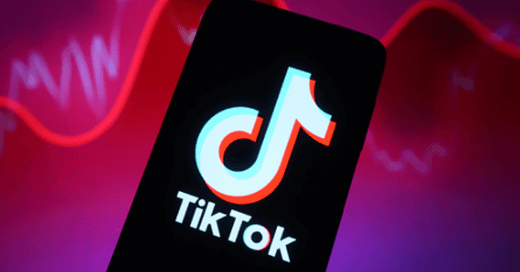Trump says China’s approval needed for TikTok deal, pushes deadline again
Democrats question Trump’s authority to delay, warn of national security and legal concerns.
The White House has confirmed that Donald Trump has once again extended the deadline for a TikTok sale for the third time, as reported by Reuters on Wednesday.
Now, the China-based company ByteDance has 90 days to sell off its US assets or it might have to shut down its operations in the US. Trump's announcement came just a day before the June 19 deadline he set with his previous extension. This extension was needed after Vice President JD Vance was unable to secure a "high-level" deal that was anticipated in April, which Politico described as a "make or break moment" where Vance could have achieved a significant victory.
Yesterday, Trump mentioned to reporters on Air Force One that China was delaying the sale, implying that China might have an advantage in the TikTok negotiations, and it seems like TikTok is losing its value as a bargaining tool in Trump's larger trade conflict.
When asked if he intended to postpone the sale deadline again, Trump replied, "probably, yeah. Probably have to get China approval but I think we'll get it. I think President Xi will ultimately approve it."
TikTok was initially set to be banned in the US on January 19 due to a bipartisan law supported by the Supreme Court that required ByteDance to sell the company to avoid China's supposed covert influence over the content on the app. Congress had expressed concerns that TikTok was being used to spy on Americans, with their data potentially accessible to the Chinese government unless TikTok was sold to a US-based owner or an ally.
Before taking office, Trump indicated that he wanted to "save" TikTok. At that moment, he asserted that he was the only one capable of striking a deal on his own terms, which he believed would let TikTok keep operating in the US without being a national security risk. Some critics argued that Trump's possible deal wouldn't work and might breach the law supported by SCOTUS. Meanwhile, ByteDance has been resistant to selling, stating that Trump can save TikTok without needing to divest, as required by the national security law.
For a lot of Americans, losing TikTok would be a big deal. TikTok has warned that US companies could lose $1 billion in just one month if the app shuts down. As these businesses remain in limbo waiting for a resolution, it’s becoming harder to take the supposed national security threat seriously, especially since finalizing the deal seems to lack urgency.
On Wednesday, the White House kept warning that Americans are not safe using TikTok, even though they have left Americans exposed for a long time, which could now be up to eight months.
In a statement, White House press secretary Karoline Leavitt simply said that "President Trump does not want TikTok to go dark" and would sign an executive order "to keep TikTok up and running" until mid-September. Leavitt confirmed that the Trump administration would aim to finalize the deal in this three-month timeframe, "ensuring the sale closes so that Americans can continue using TikTok with the confidence that their data is safe and secure," as reported by Reuters.
Trump's talks with China have been a bit rocky, but last week they managed to agree on a truce that might help them work out a TikTok deal.
At first, Trump wanted to use the TikTok deal as a way to negotiate, but the back-and-forth arguments between the US and China this spring made China unsure about making any agreements. Maybe realizing that the power in the talks was shifting, Trump suggested lowering China's highest tariffs to finalize the deal in March. However, by April, experts said that Trump still seemed "desperate" to finalize things, while China didn't see any reason to give up TikTok anytime soon.
Even with the truce in place, the tensions between the US and China are still there, as China has started to set its own deadlines to keep an advantage in the trade war. The Wall Street Journal reported that China has put a six-month limit "on the sales of rare earths to US carmakers and manufacturers, giving Beijing leverage if the trade conflict flares up again."
If Trump can't reach a deal by September and possibly gives another three-month extension, China could be in a strong position to demand concessions—especially if getting rare earths for the US is seen as more urgent than dealing with the national security issue of TikTok that Trump has been ignoring for months.
Of course, Trump also has a "powerful weapon" of his own, according to the WSJ. Limiting China's access to semiconductor equipment from companies in the US, the Netherlands, and Japan could hurt China's AI goals. The US Commerce Department considered "cutting off sales to China of a wider range of chip-manufacturing equipment" during the last trade talks, sources told the WSJ, which could have "disrupted supply chains" and threatened "billions of dollars in sales for major equipment companies like Applied Materials, Lam Research, and KLA."
Even though that threat is "not being looked at right now," a White House official said, it probably still worries China as the TikTok talks and the bigger trade conflict go on. In April, the Commerce Department started looking into how importing semiconductors and equipment could affect national security after Trump said he might impose tariffs of up to 25 percent. This investigation is likely to wrap up in early 2026.
At the same time, Democratic lawmakers are feeling anxious. They believe that Trump doesn't have the power to push back the TikTok sale deadline, that national security is still in danger, and that Trump is trying to make a deal that won't follow the legal rules to protect national security.




